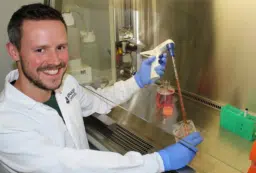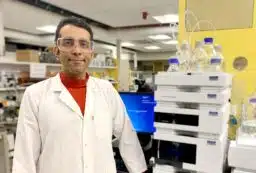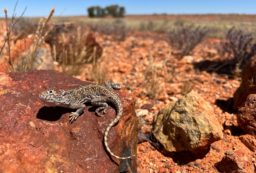Synchrotron light delivers Nature paper for young scientist
Natalie Borg and colleagues from Monash and Melbourne universities have shown for the first time how the body’s immune defence system can be triggered by fats, sugars and other biological compounds, not just by proteins. The research, published recently in Nature, opens the way to potential new treatments for whole areas of disease such as infections, rheumatoid arthritis, juvenile-onset diabetes and some types of cancer.
The research team used a synchrotron in Chicago to generate the first images of surveillance cells of the immune system, natural killer T-cells (NKT-cells), interacting with protein molecules which had captured a fat-based compound similar to those found on the coats of infectious micro-organisms.
Such compounds, which are not normally found in the body, trigger these natural killer T-cell to release chemical messengers which alert the body’s immune system.
The work is considered of such importance that Nature-one of the world’s most prestigious scientific journals-not only published it, but also commissioned a commentary on its significance.
“Until now we had a firm grasp on how our immune system recognises protein markers of infection from viruses or bacteria, but we had a limited understanding of how foreign fats and other compounds are recognised,” says Borg. “Now we know that mode of recognition is quite different as compared to proteins.
“By understanding how these killer T-cells signal that the body is under attack, we can learn to manipulate the system to give us a desired immune response to help combat a particular disease. Indeed, the compounds which trigger the immune response could be used to manipulate the system. The compound we used in our study has potent anti-cancer activity in mice and comes from a marine sponge”.
Natalie Borg’s work is sponsored by an NHMRC Peter Doherty Fellowship.
Natalie Borg is one of 16 early-career scientists presenting their research to the public for the first time thanks to Fresh Science, a national program sponsored by the Federal and Victorian Governments.




 Fresh Science is on hold for 2022. We will be back in 2023.
Fresh Science is on hold for 2022. We will be back in 2023.